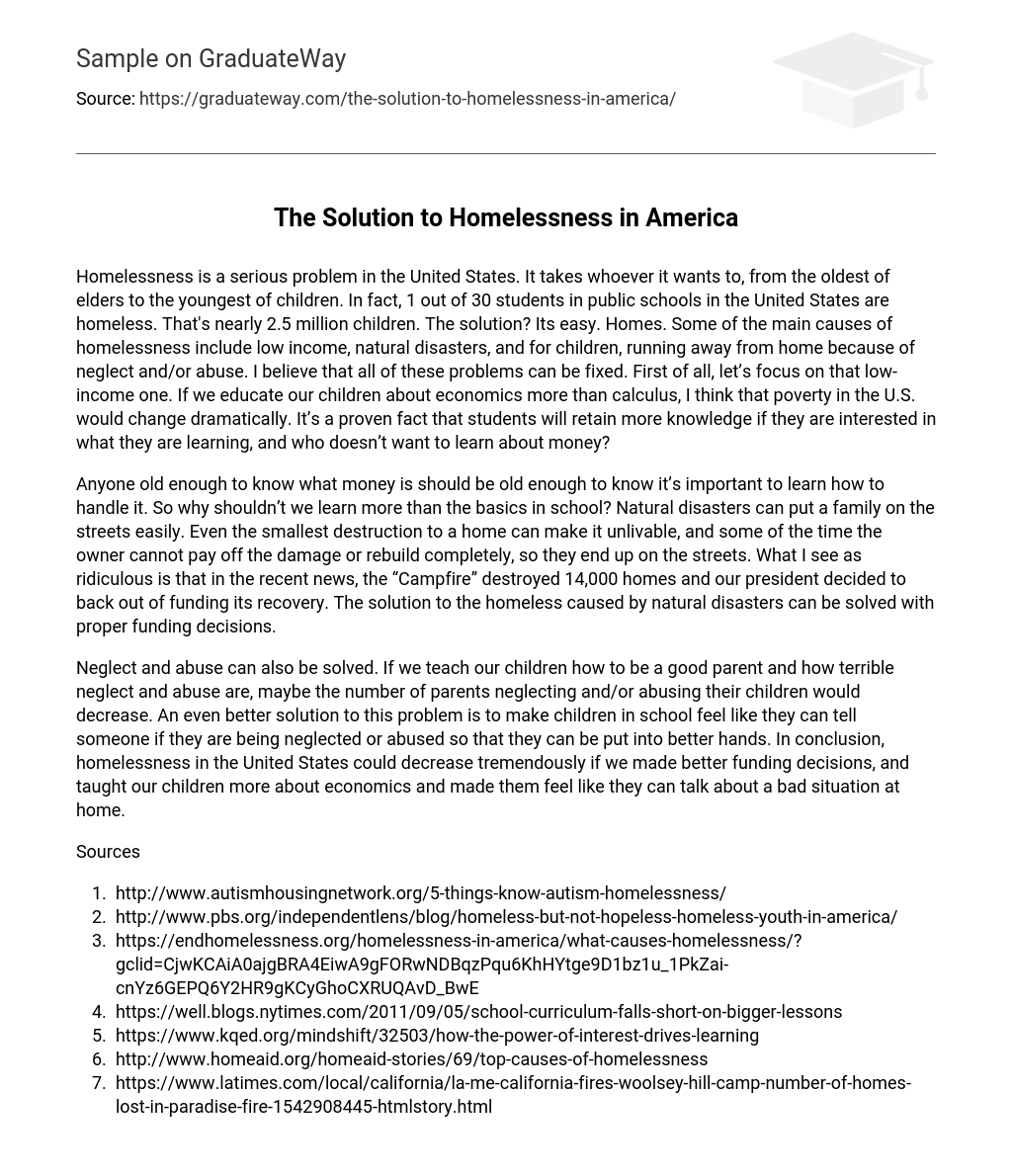Homelessness is a serious problem in the United States. It takes whoever it wants to, from the oldest of elders to the youngest of children. In fact, 1 out of 30 students in public schools in the United States are homeless. That’s nearly 2.5 million children. The solution? Its easy. Homes. Some of the main causes of homelessness include low income, natural disasters, and for children, running away from home because of neglect and/or abuse. I believe that all of these problems can be fixed. First of all, let’s focus on that low-income one. If we educate our children about economics more than calculus, I think that poverty in the U.S. would change dramatically. It’s a proven fact that students will retain more knowledge if they are interested in what they are learning, and who doesn’t want to learn about money?
Anyone old enough to know what money is should be old enough to know it’s important to learn how to handle it. So why shouldn’t we learn more than the basics in school? Natural disasters can put a family on the streets easily. Even the smallest destruction to a home can make it unlivable, and some of the time the owner cannot pay off the damage or rebuild completely, so they end up on the streets. What I see as ridiculous is that in the recent news, the “Campfire” destroyed 14,000 homes and our president decided to back out of funding its recovery. The solution to the homeless caused by natural disasters can be solved with proper funding decisions.
Neglect and abuse can also be solved. If we teach our children how to be a good parent and how terrible neglect and abuse are, maybe the number of parents neglecting and/or abusing their children would decrease. An even better solution to this problem is to make children in school feel like they can tell someone if they are being neglected or abused so that they can be put into better hands. In conclusion, homelessness in the United States could decrease tremendously if we made better funding decisions, and taught our children more about economics and made them feel like they can talk about a bad situation at home.
Sources
- http://www.autismhousingnetwork.org/5-things-know-autism-homelessness/
- http://www.pbs.org/independentlens/blog/homeless-but-not-hopeless-homeless-youth-in-america/
- https://endhomelessness.org/homelessness-in-america/what-causes-homelessness/?gclid=CjwKCAiA0ajgBRA4EiwA9gFORwNDBqzPqu6KhHYtge9D1bz1u_1PkZai-cnYz6GEPQ6Y2HR9gKCyGhoCXRUQAvD_BwE
- https://well.blogs.nytimes.com/2011/09/05/school-curriculum-falls-short-on-bigger-lessons
- https://www.kqed.org/mindshift/32503/how-the-power-of-interest-drives-learning
- http://www.homeaid.org/homeaid-stories/69/top-causes-of-homelessness
- https://www.latimes.com/local/california/la-me-california-fires-woolsey-hill-camp-number-of-homes-lost-in-paradise-fire-1542908445-htmlstory.html





